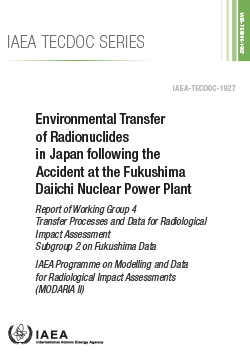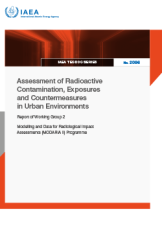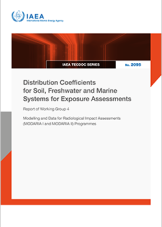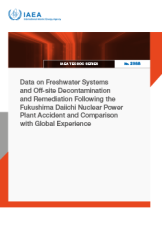Environmental Transfer of Radionuclides in Japan following the Accident at the Fukushima Daiichi Nuclear Power Plant
Report of Working Group 4 Transfer Processes and Data for Radiological Impact Assessment Subgroup 2 on Fukushima Data
IAEA-TECDOC-1927
ISBN
978-92-0-117920-3
358 pages | 96 figures | € 18.00 | Date published: 2020
The publication focuses on radioecologjcal experience and data acquired and lessons learned in Japan following the nuclear accident at the Fukushima Daiichi nuclear power plant in March 2011. The publication brings together outcomes of the extensive studies, done by Japanese scientists and their colleagues from other countries, on characterization of radioecological transfer parameters in the terrestrial and aquatic environments of Japan affected by radionuclides released in the accident. The Japan specific data are systematically presented and compared to the global experience gained from the earlier nuclear accidents, military or industrial activities. Climate, landscape, agriculture and food processing practices, lifestyle and national dietary customs are shown as factors influencing transfer of radionuclides through the environment and human food chains. The publication summarizes country specific experience and puts it into existing global radioecological contexts.
Keywords:
Environment, Radionuclide, Japan, Fukushima Daiichi, NPP, Nuclear Power Plant, Radioecological Experience, Data, Lessons Learned, Nuclear Accident, Terrestrial, Aquatic, Climate, Landscape, Agriculture, Food Processing, Lifestyle, Human Food Chain, MODARIA, Modelling and Data for Radiological Impact Assessments, Ionizing Radiation, Model, Modelling, Comparison, Testing, Radioecological Data, Radiation Exposure, Wildlife, Biosphere, Marine, Waste Disposal Facilities, Safety, Transfer Parameters, Ecosystem, Process, Forest, Catchments, Rivers, FAO, Food and Agriculture Organization, NRA, Nuclear Regulation Authority



